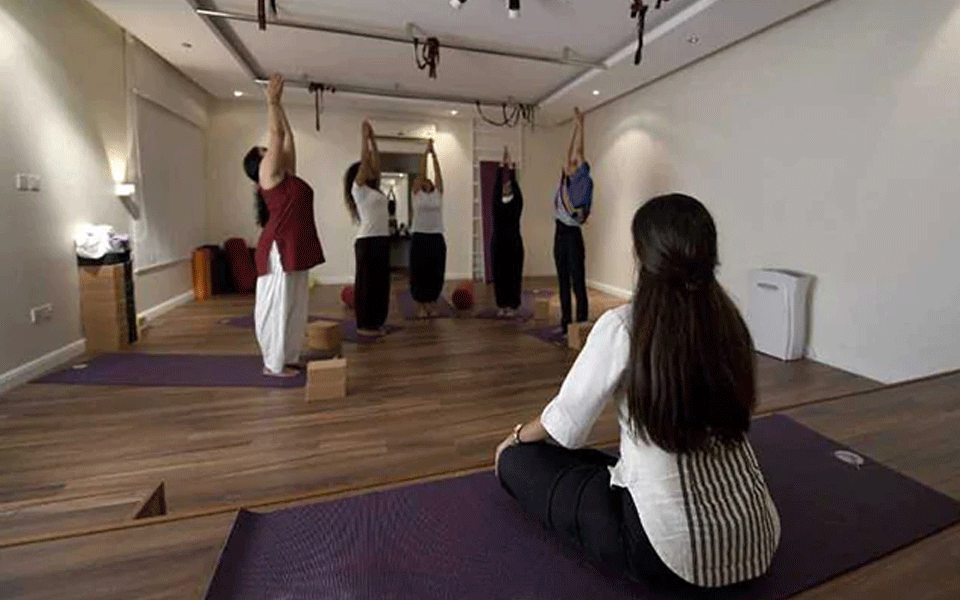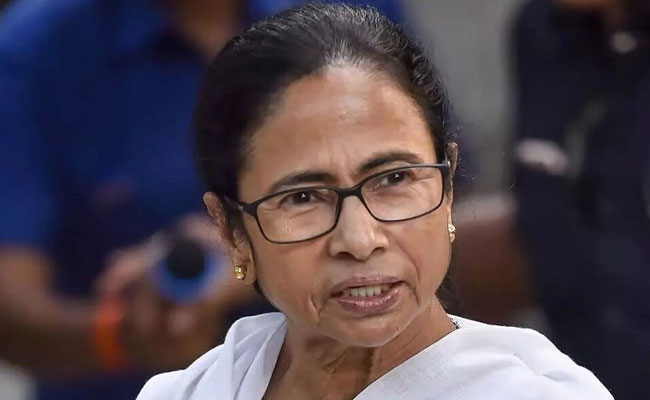JEDDAH: In a sparse, wood-floored studio, Saudi women squat, lunge and do headstands. Even a year ago, teaching these yoga postures could have rendered them outlaws in the conservative kingdom.
Yoga was not officially permitted for decades in Saudi Arabia.
But with Crown Prince Mohammed bin Salman vowing an "open, moderate Islam", the kingdom last November recognised yoga as a sport amid a new liberalisation drive that has sidelined religious hardliners.
Spearheading efforts to normalise yoga in the kingdom is Nouf Marwaai, a Saudi woman who has battled insults and threats from extremists.
"I have been harassed, (and) sent a lot of hate messages," said the 38-year-old head of the Arab Yoga Foundation, which has trained hundreds of yoga instructors in the kingdom.
"Five years ago, this (teaching yoga) would have been impossible," added Marwaai, as she began training a cluster of women students at a private studio in the Red Sea city of Jeddah.
Hanging up their body-shrouding abayas and headscarves, the women stretched in unison in an arching warrior pose known as "virabhadrasana".
Arms outstretched, their bodies folded into a 180-degree backward bending posture known as "chakrasana", or wheel pose.
In a country where women have long been denied the right to exercise publicly, the students -- some of whom regularly attend yoga retreats in India -- said the exercise had transformed their lives.
Ayat Samman, a 32-year-old health educator, said yoga helped alleviate her lifelong struggle with fibromyalgia, a chronic pain disorder that often left her bedridden.
Yoga also works as therapy, the women said, helping them vent bottled up emotions and tackle a woefully common ailment -- depression.
"It just opened me up like a water balloon," said Yasmin Machri, 32.
"After my first class... I started breaking down and crying."
Religious outreach
In just a few months since yoga's recognition, a new industry of yoga studios and instructors has sprouted in various Saudi cities. That includes Mecca and Medina, Islam's holiest cities, Marwaai said.

Yoga was not officially permitted for decades in Saudi Arabia (AFP)
Prince Mohammed, the de facto ruler, has sought to project a moderate image of the kingdom, long associated with a fundamentalist strain of Wahhabi Islam, with a new push for inter-religious exchange.
Saudi Arabia in recent months has hosted officials linked to the Vatican and the prince also met a group of Roman Catholic and Jewish leaders in New York earlier this year, in a rare inter-faith gesture.
"The prince's outreach to other religions is apparent in the interfaith gatherings and the new enthusiasm for Saudi Arabia's pre-Islamic heritage," said Kristin Diwan, of the Arab Gulf States Institute in Washington.
For decades, Saudi rulers derived much of their legitimacy from their alliance with a clerical establishment that pushed a puritanical vision of Islam.
But the prince appears to have upturned the system, seeking instead to tap support from the kingdom's swelling youth base through a surge of nationalism and a much-hyped modernisation drive.
Saudi columnists have openly called for abolishing the once-feared religious police as the kingdom introduces entertainment, including mixed-gender concerts, and re-opens cinemas after a decades-long ban.
Prominent hardline Salafist clerics with millions of followers on social media have been jailed, with some on death row, as the crown prince clamps down on dissent.
"The religious networks which once led campaigns against more liberal ideas appear cowed, but new practices like yoga are always subject to ad-hoc attacks," Diwan said.
'Nothing to do with religion'
Yoga is still regarded as a deviant practice in conservative circles, and Marwaai's students say they often confront accusations of betraying their religion.
"I receive messages through social media asking: 'Are you a Hindu? Did you turn into a Hindu?'" said Budur al-Hamoud, a recruitment specialist.
"Yoga has nothing to do with religion. It's a sport... It does not interfere with my faith."
Yoga is seen at odds with several other faiths, but the recognition of the practice in Saudi Arabia -- the epicentre of the Islamic world -- appears to have given a new impetus to Muslim yoga practitioners around the world.
Marwaai is taking on conservatives not just in the kingdom but also India, the birthplace of yoga where clerics last year slapped a fatwa, or religious edict, against a female Muslim yoga teacher just days before the kingdom recognised the sport.
In a shrill television debate, Marwaai -- a lupus survivor and recently awarded the Padma Shri -- calmly sought to reason with Muslim clerics who hurled insults at her.
The clerics were particularly opposed to "Surya Namaskar". "It is not the worshipping of the sun and the moon," Marwaai responded as tempers frayed, denying they engaged in chanting.
Unconvinced, a cleric said the set of physical movements in the Muslim prayer ritual offered enough exercise.
Courtesy: www.ndtv.com
Let the Truth be known. If you read VB and like VB, please be a VB Supporter and Help us deliver the Truth to one and all.
Medininagar (PTI): A couple and their 18-year-old son were allegedly hacked to death over suspicion of practising witchcraft in Jharkhand's Palamu, police said on Sunday.
Their minor daughter was also injured in the attack late on Saturday, a police officer said.
The bodies were recovered from their house on Sunday in Panki police station area, he said.
“Initial investigation suggests that the case is related to witchcraft suspicion,” Manoj Kumar Jha, Sub-Divisional Police Officer (SDPO) of Lesliganj told PTI.
A manhunt is on to nab the culprits, Jha said.
The girl suffered severe injuries and has been admitted to a government hospital, he said.
The deceased have been identified as Vijay Bhuiyan (45), his wife Kalia Devi (40), and their son Chotu Bhuiyan.
The bodies have been sent to Medinirai Medical College and Hospital (MMCH) for post-mortem examination.





